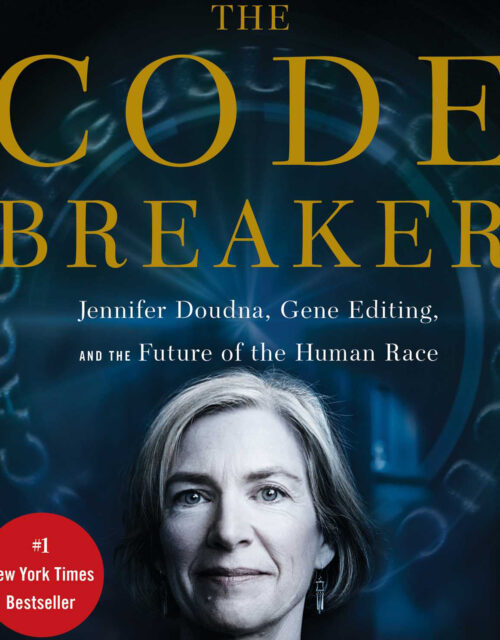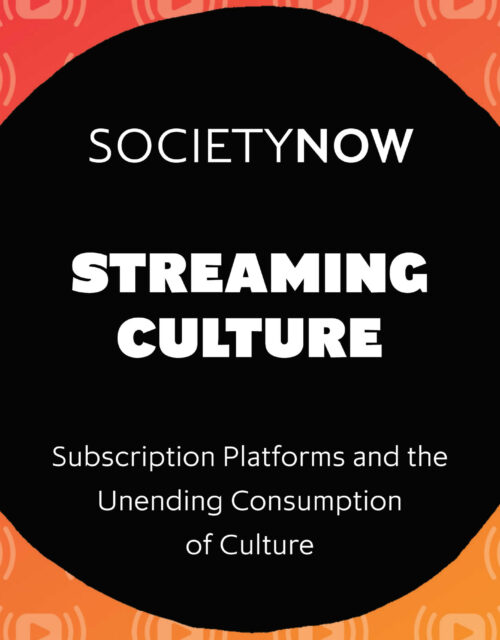Everything You’ve Ever Learned
Science and technology can be redemptive forces for the world. But on the wings of transformative science and technology, we traded, among other things, a strong manufacturing base that provided secure jobs and decent livelihoods for a gig economy that doesn’t. We invested in innovation that created untold wealth, and let a tiny portion of society capture most of it. We celebrate the creative destruction of technological innovation, but a good society would be one that figures out how to use its immense financial and technological powers not just to nourish the creation but to mitigate the destruction.
Editor's Journal
How Good Is Science?
Read MoreScience is a political panacea. Is it a social one? If breakthrough, frontier, high-risk, translational, transformative science actually comes to pass, what sort of nation will it leave us with? A society good at science isn’t the same as a good society, one worthy of science’s promise and gifts.
Forum
Beyond Trust in Science
Read MoreCognitive Ecosystems
Read MorePrinciples for US Industrial Policy
Read MoreDemocratizing Talent and Ideas
Read MoreScience for Policy
Read MorePractically Wise
Read MoreTeaching the Stories of Science
Read MoreThinking Like A Citizen
Read MoreNuclear Waste Storage
Read MoreA Viable Nuclear Industry
Read More

Gallery
COVID Artifacts
Perspectives
Cleaning Up Delhi’s Deadly Fall Smog Requires an Even Greener Revolution
Read MoreThe annual air pollution crisis in Delhi has roots in the country’s famed Green Revolution and is an example of how rapidly rural agriculture is evolving, creating new and highly complex environmental issues in an increasingly industrialized India.
Lost in Translation: Why Animal Research Fails to Deliver on Its Promise
Read MoreGiven that animal research is ethically dubious and methodologically unsound, why do scientists continue to experiment on animals?
Research on Solar Climate Intervention Is the Best Defense Against Moral Hazard
Read MoreAs concerns about global warming mount and international efforts to address it lag, should public policy be encouraging or inhibiting research on technologies to reflect sunlight away from the earth?
When the Unspeakable Is No Longer Taboo: Growth Without Economic Growth
Read MoreAn obsession with economic growth is wrecking society and harming the planet. What if policymakers focused on improving the quality of citizens’ lives rather than on quantitative economic indicators?

Interview
“We Really Should Be Talking About an Ethics of Policymaking, Not Just the Bare-Knuckle Politics of Policymaking.”
Poetry
Eratosthenes Measures the World
Read More“Staring into his little sphere, / contemplating a visible heaven—its movements— / he thought / there is a path / to map the boundaries of this planet.” An award-winning poet envisions a moment of discovery.

Gallery
Think About Water
Features
Everything You’ve Ever Learned
Sofia spent 15 years as an active-duty member of the military. While deployed in Afghanistan and stationed in Georgia and Japan, she was involved in logistics planning and management as well as… Read MoreA Concerted and Equitable Approach to Managed Retreat
Read MoreUS policies for addressing climate migration focus on disaster response efforts and to a lesser extent on managed retreat, but none provide much support for the most at-risk populations.
True Stories of Managed Retreat From Rising Waters
Read MoreIn light of increased flooding and rising sea levels, a number of new, expensive, and publicly contentious managed-retreat projects are being discussed, planned, and implemented.
Unmasking Scientific Expertise
Read MoreIf we want to rebuild a shared public trust in expertise, we will need a more realistic and humane language to talk about scientific expertise and its place in our political life—an account of expertise that is worthy of the public’s trust.
How Climate Scenarios Lost Touch With Reality
Read MoreThe continuing misuse of scenarios in climate research has become pervasive and consequential—so much so that we view it as one of the most significant failures of scientific integrity in the twenty-first century thus far. We need a course correction.
Time to Say Goodbye to Our Heroes?
Read MoreTo increase the speed and impact of knowledge creation, the United States must radically restructure research funding and resources away from big names—and toward our biggest questions.
Innovation-Based Economic Security
Read MoreAfter decades of operating with very little orchestration, and in a world where the United States was dominant in science and engineering capabilities, the US government needs to change the way it coordinates S&T policy with economic and regulatory actions and international agreements that affect innovation-based economic security.
A New S&T Policy for a New Global Reality
Read MoreEconomic value can be captured from global sources and integrated locally—but it requires deliberate actions, appropriate for the new situation. Just as national security depends on allies and alliances, so too must science and technology policy. US economic security and prosperity requires creating strategic international collaborations.
Book Reviews

Not So Fast
Read MoreOne of the central themes of Henry T. Greely’s new book on CRISPR gene editing is that Science—the capital S signifying the scientific community as a collective—has given short shrift to those societal aspects of the political decisions that need to be made. At times, this process has seemed almost comical.

We Haven’t Really Cracked the Code of Life
Read MoreWhen it comes to DNA, our code breaking isn’t all it’s cracked up to be: if the Allies had had the same level of expertise in actual cryptology that scientists now have with DNA, they might well have lost World War II.

More and More and More Culture
Read MoreStreaming platforms have transformed how people consume culture. But could streaming change “the fundamental structure of capitalism”?
